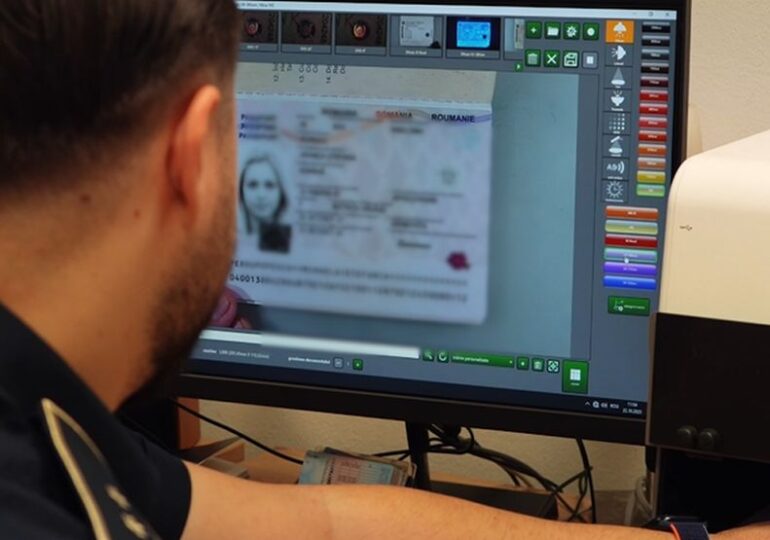The Romanian Border Police warns of a significant increase in cases of false identity documents discovered at border crossings, especially at Henri Coandă – Otopeni International Airport, where in just the first nine months of 2025, over 100 false or forged documents have been identified.
According to a statement released on Saturday, the frequency of falsification cases at Otopeni reached, in September, an incident every two days, reflecting the „high level of professionalism and vigilance of the operational structures.”
False documents, citizens from multiple states
In most cases, those attempting to cross the border with false documents are Romanian citizens or individuals from Albania, Syria, Kazakhstan, and Georgia, states whose citizens require a visa to travel to the Schengen area or against whom international alerts exist.
The most frequently forged documents are Romanian, Polish, and Italian identity cards, used for illegal travel to Schengen countries.
Methods used and advanced checks
One of the common methods at airports is the "double check-in" - non-EU citizens purchasing two plane tickets: one to a destination where they do not need a visa and another to a Schengen country. After accessing the transit area, they attempt to board the Schengen flight using false documents.
To combat fraud, border police use modern technologies:
- video-spectral comparators for document analysis in white light, UV, and infrared;
- ultraviolet lamps and portable devices for verifying document authenticity.
Recent cases at Otopeni
At the end of September, at Henri Coandă Airport, citizens from Iran, Bangladesh, Syria, and Romania were found with forged passports or identity cards.
The police interrupted their travels and opened criminal cases for forgery, use of forged documents, complicity, or attempted illegal border crossing. The penalty for these offenses is between 3 months and 5 years in prison.
789 cases of forgery in the first nine months of 2025
Nationally, from January to September 2025, 789 cases of forgery and use of forged documents were recorded, involving Romanian and foreign citizens.
The Border Police emphasizes that the results obtained are "a direct consequence of well-founded risk analysis and a high level of professional training," recognized at the European level as a significant contribution to securing the external borders of the European Union.

